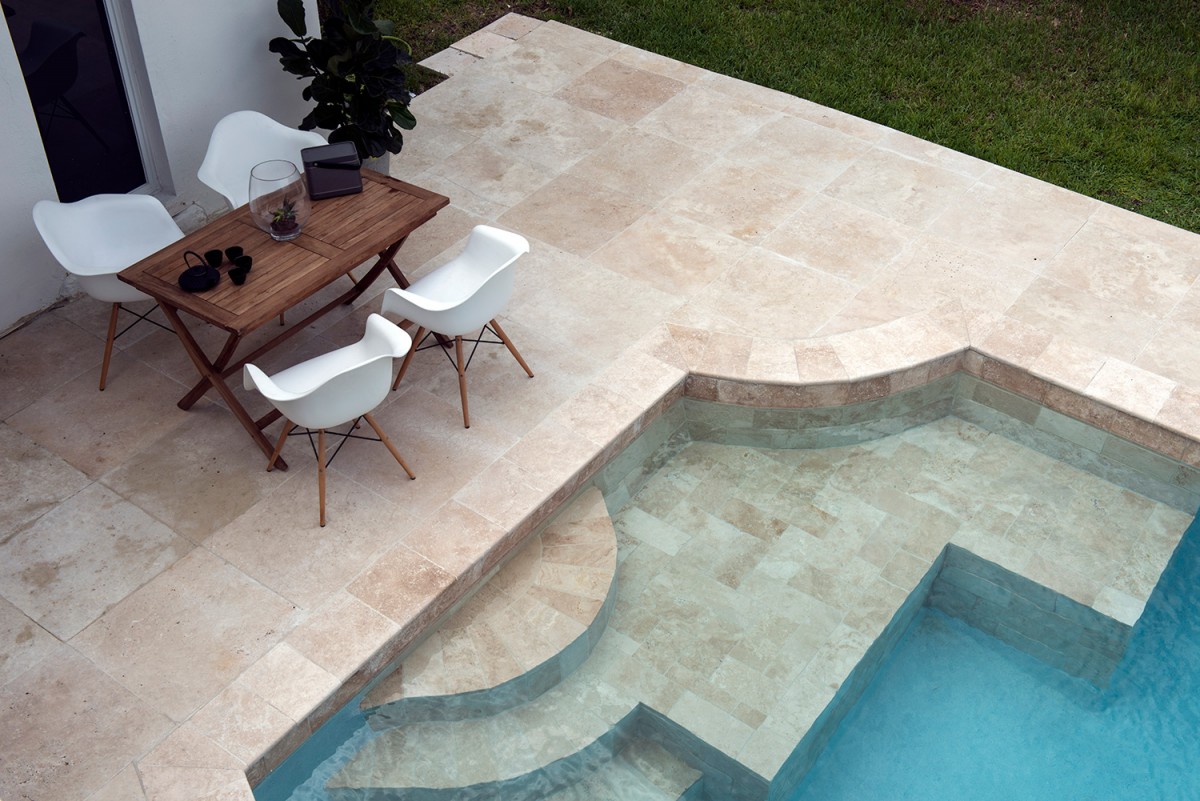Travertine pavers are a timeless and elegant choice for many outdoor projects — from patios and pool decks to garden walkways. However, like all natural stones, they have their limits. Knowing where not to use travertine can save you from maintenance headaches, damage, and costly replacements down the line.
Here are a few key areas and situations where travertine pavers might not be the best fit:
1. Freezing or Harsh Winter Climates
Travertine is porous, meaning it can absorb water. In areas where freezing temperatures are common, that absorbed moisture can expand when frozen — leading to cracks, chips, and surface erosion.
Tip: If you live in a freeze-thaw region, avoid using travertine outdoors unless it’s sealed properly and installed with excellent drainage.
2. High-Traffic Commercial Areas
Travertine is durable, but not indestructible. In commercial zones like shopping centers, public walkways, or parking lots, heavy foot traffic, carts, or vehicles can cause wear and surface dulling over time.
For these areas, consider porcelain pavers or concrete alternatives that offer greater resistance to abrasion and impact.
3. Driveways or Heavy Load Surfaces
While travertine pavers can support foot traffic and light patio furniture, they’re not ideal for bearing the weight of vehicles. The constant pressure and movement can cause cracking and uneven settling.
Stick to reinforced concrete or thicker natural stones (at least 2.5 inches thick) for driveways and similar applications.
4. Unsealed Indoor Wet Areas
In bathrooms, laundry rooms, or kitchens, travertine can become slippery when wet and is susceptible to staining from soaps, detergents, and acidic products.
If you want a natural look indoors, use honed and sealed travertine tiles instead of outdoor pavers — or choose non-porous alternatives like porcelain.
5. Poorly Drained or Muddy Soil
Travertine performs best when installed on a solid, well-drained base. If laid over soft or water-retaining soil, it can shift, sink, or develop algae and mildew due to constant moisture.
Always use a compacted gravel base and ensure proper water runoff grading before installation.
6. Acidic or Chemical-Exposed Areas
Travertine reacts with acids — including vinegar, citrus, wine, and pool chemicals. For that reason, avoid using it in outdoor kitchen areas, near BBQs, or chemical storage spaces where spills are likely.
Over time, acids can etch and dull the stone’s surface, leaving permanent marks.
7. Shady, Damp Areas Prone to Moss
If your yard has shaded corners that stay damp, travertine can develop slippery moss or mildew buildup.
You can minimize this with regular cleaning and sealing, but if maintenance is a concern, you may want to opt for materials like textured porcelain or slip-resistant concrete.
Final Thoughts – Where to not use travertine pavers?
Travertine pavers are stunning and long-lasting when used in the right environments — sunny patios, pool surrounds, and garden paths. However, avoiding the conditions above will help preserve their natural beauty and prevent structural issues.
When in doubt, consult a stone specialist or your installer to confirm whether travertine is suitable for your specific climate and site conditions.

